ISMR
Outreach
Outreach
Head and neck cancer patients have post-treatment functional disabilities that can be restored by means of surgical reconstruction combined with oral and facial prostheses. Restoring a missing ear or a nose can be a life-long gift. Rehabilitation leads to a rewarding realization of higher self-esteem and meaningful productivity in society. The ISMR encourages our members to get involved and help.
HOW CAN YOU HELP?
Members and our Industry Partners have the opportunity to contribute and participate in Outreach Programs. Volunteering your time to this healing experience can offer a lifetime of personal accomplishment.
OUTREACH PROGRAMS
The ISMR would like to draw your attention to the following related outreach programs and activities:
- The ISMR Outreach Fellowship Program
- The Head and Neck Reconstruction Summit
- Foundation for Oral-Facial Rehabilitation
- Smiles for Moldova Foundation
- Global Maxillofacial Prosthetic Charity

“The need in Johannesburg for a good quality state hospital Head & Neck multidisciplinary unit is greatly palpable. Numerous patients are transferred to our tertiary institute, Charlotte Maxeke Johannesburg Academic hospital, seeking help for advanced and complicated head & neck pathology. Our Head & Neck ENT clinic attends to approximately 200 patients a month. Many of the smaller surrounding hospitals are only able to provide a very limited head and neck pathology related service. The need for a functional multidisciplinary Head & Neck unit is crucial. The skill needed to not only run such a unit, but have insight into patient treatment and education is obvious. I hope to gain knowledge, insight and skill from my outreach fellowship in Head & Neck at the University of Alberta that I can bring back and use to create a centre of excellence within our state hospital setting.”
– 2016 Recipient: Dr. Lisa Burnell (Otolaryngologist)
International Head & Neck Surgery Outreach Program – Visiting Scholar:
D.A. O’Connell MD MSc. FRCS(C)
Supported and funded through the Alberta Head and Neck Center for Cancer and Reconstruction (AHNCOR)
Duration: 3 months
Open To: International candidates with fellowship and/or board certification (or national equivalent) in Otolaryngology – Head & Neck Surgery; General Surgery; Plastic Surgery, Oral & Maxillofacial Surgery or other related discipline and who are eligible for teaching license through the University of Alberta. Preference will be given to candidates currently practicing in and planning on returning to regions or countries currently under-serviced in the area of Head & Neck Surgery.
Goals and Objectives:
1. Provide an excellent academic opportunity to foster and develop specialized skills in Head & Neck Surgery and reconstruction.
2. Develop trained sub-specialists who will contribute to the ongoing development of head and neck surgery in their home country.
3. Foster and develop surgical educators in head & neck, and reconstructive surgery programs, with special priority given to people returning to academic programs.
4. Encourage and develop new skills in head & neck / reconstructive surgery through participation in basic science, clinical trials, and clinical research ventures.
5. To have no negative impact on any existing Otolaryngology – Head & Neck Surgery Fellowship or Residency programs currently operating at the University of Alberta.
6. Allow hands on surgical exposure for the visiting scholar only during cases which are deemed advanced or inappropriate for a surgical resident trainee.
Applications:
1. A current Curriculum Vitae (CV)
2. A future plans statement, to include future goals, intentions and why you have chosen head and neck surgery (should be 1 page or less)
3. An official Medical School Transcript with seal (electronic submission accepted from registrar only)
4. Validated credentials that show applicant has completed a formal training program in Otolaryngology, General Surgery, Oral & maxillofacial Surgery or Plastic Surgery in their respective country
5. Applicants need two letters of recommendation:
· Letter of head of your program where applicant trained
· Letter of head of department or division where currently employed
Program Description:
1. Rotation through Cross Cancer Institute, radiation oncology and medical oncology clinics. Duration 1 week
2. Microvascular Surgery Wet Lab – microscopic techniques on live animals. Duration 2 weeks
3. Participation in Multidisciplinary Head and Neck Oncology Clinic – ½ day per week
4. Participation in Head & Neck clinics, Head & Neck Mass FNA clinics
5. Observation and hands on participation in major head & neck resection and reconstruction cases (3 per week)
6. Goal to have fellow perform 10 flap harvests and microvascular anastomosis by completion of fellowship
Scholar Feedback and Review:
Feedback and performance reviews for the visiting scholar will be completed via monthly meetings and structured reviews (ITER – in training evaluation report) with the International Scholar Program Director (Dr. Dan O’Connell)
Fellowship Timeline:
April 1 – June 30 (dates flexible):
Week 1 – orientation, exposure to clinic and surgery environments
Week 2 – CCI Radiation Oncology / Medical Oncology Rotation
Week 3 – Microvascular Surgery Wetlab / iRSM
Week 4 – Microvascular Surgery Wetlab / Surgical Cases
Week 5 – Clinical cases / Surgical Cases
Weeks 6 – 8 – Clinical and Surgical Cases
Weeks 8 – 12 – hands on microsurgery cases
· Goal to have international fellow do majority of flaps for 1 month period of training
Salary Support:
$10,000.00 CAD stipend (Provided by Alberta Head and Neck Centre for Oncology and Reconstruction)


